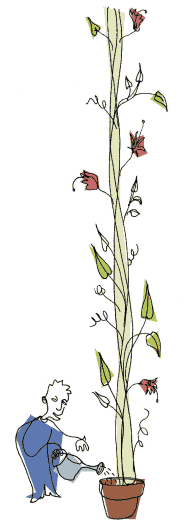Developing countries
Development and trade

Over three quarters of WTO members are developing or least-developed countries. All WTO agreements contain special provision for them, including longer time periods to implement agreements and commitments, measures to increase their trading opportunities and support to help them build the infrastructure for WTO work, handle disputes, and implement technical standards.
The 2001 Ministerial Conference in Doha set out tasks, including negotiations, for a wide range of issues concerning developing countries. Some people call the new negotiations the Doha Development Round.
Before that, in 1997, a high-level meeting on trade initiatives and technical assistance for least-developed countries resulted in an “integrated framework” involving six intergovernmental agencies, to help least-developed countries increase their ability to trade, and some additional preferential market access agreements.
A WTO committee on trade and development, assisted by a sub-committee on least-developed countries, looks at developing countries’ special needs. Its responsibility includes implementation of the agreements, technical cooperation, and the increased participation of developing countries in the global trading system
Technical assistance and training
The WTO organizes around 100 technical cooperation missions to developing countries annually. It holds on average three trade policy courses each year in Geneva for government officials. Regional seminars are held regularly in all regions of the world with a special emphasis on African countries. Training courses are also organized in Geneva for officials from countries in transition from central planning to market economies.
The WTO set up reference centres in over 100 trade ministries and regional organizations in capitals of developing and least-developed countries, providing computers and internet access to enable ministry officials to keep abreast of events in the WTO in Geneva through online access to the WTO’s immense database of official documents and other material. Efforts are also being made to help countries that do not have permanent representatives in Geneva.
Development and trade

Over three quarters of WTO members are developing or least-developed countries. All WTO agreements contain special provision for them, including longer time periods to implement agreements and commitments, measures to increase their trading opportunities and support to help them build the infrastructure for WTO work, handle disputes, and implement technical standards.
The 2001 Ministerial Conference in Doha set out tasks, including negotiations, for a wide range of issues concerning developing countries. Some people call the new negotiations the Doha Development Round.
Before that, in 1997, a high-level meeting on trade initiatives and technical assistance for least-developed countries resulted in an “integrated framework” involving six intergovernmental agencies, to help least-developed countries increase their ability to trade, and some additional preferential market access agreements.
A WTO committee on trade and development, assisted by a sub-committee on least-developed countries, looks at developing countries’ special needs. Its responsibility includes implementation of the agreements, technical cooperation, and the increased participation of developing countries in the global trading system
Technical assistance and training
The WTO organizes around 100 technical cooperation missions to developing countries annually. It holds on average three trade policy courses each year in Geneva for government officials. Regional seminars are held regularly in all regions of the world with a special emphasis on African countries. Training courses are also organized in Geneva for officials from countries in transition from central planning to market economies.
The WTO set up reference centres in over 100 trade ministries and regional organizations in capitals of developing and least-developed countries, providing computers and internet access to enable ministry officials to keep abreast of events in the WTO in Geneva through online access to the WTO’s immense database of official documents and other material. Efforts are also being made to help countries that do not have permanent representatives in Geneva.

No comments:
Post a Comment